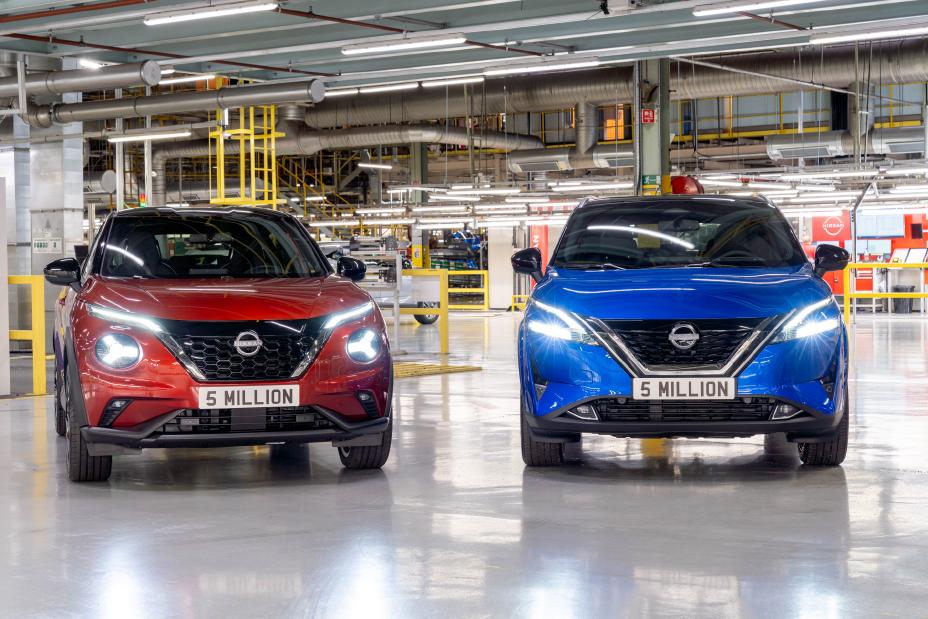Nissan is initiating discussions with employees at its Sunderland plant regarding voluntary redundancy, as part of a broader global restructuring strategy aimed at reducing its workforce and optimising operational efficiency. This development, reported by Reuters, forms part of a wider plan by the Japanese automaker to streamline operations amid mounting financial and strategic challenges.
The company intends to cut approximately 15% of its global workforce, which translates to roughly 20,000 jobs out of its total 133,500 employees. Although Nissan has not confirmed specific figures for Sunderland, early estimates suggest around 250 roles may be affected. The company insists this is part of an effort to make the UK plant leaner, more flexible, and better aligned with its long-term vision, especially as it pivots toward electric mobility.
Despite the looming layoffs, Nissan has reiterated its commitment to the Sunderland facility, calling it a “super important” part of its European operations. The plant is set to continue manufacturing the next-generation Nissan Leaf, a key model in the brand’s transition to an all-electric future. Importantly, Sunderland is not among the seven global sites slated for closure, offering a measure of reassurance for the 6,000 employees currently based there.
In addition to workforce reductions, Nissan is reportedly requesting payment deferrals from some suppliers in the UK and Europe. This measure is part of a broader attempt to stabilise cash flow while the company navigates a turbulent global market marked by rising costs, shrinking margins, and shifting consumer demand.
The backdrop to this restructuring effort is a sobering one. In May 2025, Nissan announced a sweeping global cost-cutting plan, including the closure of seven production plants and the elimination of 11,000 jobs. This move builds on an earlier round of cuts in late 2024, bringing the total job losses to around 20,000. Two-thirds of those affected are from manufacturing roles, with the remainder spread across sales, research, administration, and contract positions.
For Sunderland, once considered the jewel of Nissan’s European operations, this shift introduces an air of uncertainty. The plant, which has benefited from significant UK government support—including a £100 million contribution in 2021 toward a battery gigafactory partnership with Chinese firm Envision—is facing an unclear path forward. While production of electric models like the new Leaf will continue, broader investment cuts and the cancellation of a planned EV factory in Japan suggest a more cautious corporate posture.
The company’s broader troubles are rooted in declining performance across key global markets. In China, one of the most competitive EV battlegrounds, Nissan’s sales dropped by 12% last year amid intense competition from domestic brands such as BYD. In the United States, inflation, high interest rates, and aggressive discounting have impacted profitability. Compounding these issues are lingering trade tensions, including a 25% tariff on cars and parts entering the U.S., although UK-built vehicles currently benefit from a reduced 10% duty under a bilateral trade agreement.
Leadership instability has also played a role in Nissan’s current challenges. Earlier this year, a proposed merger with fellow Japanese automakers Honda and Mitsubishi collapsed, undermining a strategy to create the world’s fourth-largest carmaker. The fallout from that failure led to the resignation of CEO Makoto Uchida. He has since been replaced by Ivan Espinosa, previously head of planning and motorsports, who now faces the task of restoring confidence and competitiveness to the brand.
While much of this restructuring is internal, the ripple effects will likely be felt by consumers. Reduced production capacity, especially in Europe, could result in longer lead times and potential shortages of popular models such as the Qashqai and Juke. A narrower focus on electric models like the Leaf and Ariya may also mean fewer options for customers seeking traditional combustion vehicles. Prices could increase due to lower economies of scale and supply constraints.
There are also implications for customer service and brand loyalty. Job reductions across administrative and support functions may slow response times and diminish the quality of after-sales service. As uncertainty grows and headlines focus on layoffs and plant closures, some consumers may question the long-term reliability of the Nissan brand, potentially affecting purchasing decisions and market share.
Nissan now faces a delicate balancing act: cutting costs without compromising product quality, service standards, or market confidence. Its ability to reassure customers, motivate staff, and deliver a forward-looking product line will be key to navigating this turbulent period.
The Sunderland plant remains a vital piece of this equation. As the largest car manufacturing facility in the UK, it currently produces three key models: the Nissan Qashqai, the Nissan Juke, and the Nissan Leaf. These models not only represent the brand’s bestsellers in Europe but also embody Nissan’s legacy and future ambitions in the British automotive industry.


